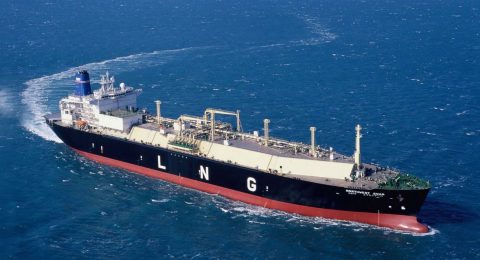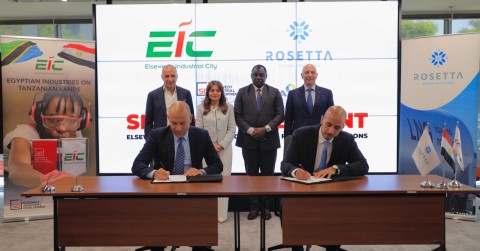Massive projects currently underway will take Bahrain towards sustainable energy security, Energy Minister Dr Abdulhussain Mirza has said.
He was speaking at the opening of the 19th Middle East Oil and Gas Show and Conference (MEOS 2015) being held under the patronage of His Royal Highness Prime Minister Prince Khalifa bin Salman Al Khalifa, said a report in the Gulf Daily News (GDN), our sister publication.
“We continue to plan long-term and invest more in technology,” the minister yesterday said.
“We are forging ahead in creating global partnerships and alliances, leveraging on the strengths of partnering countries.
“Employing advanced technology in the entire supply chain from upstream or downstream, and building successful business partnerships in new ventures is of paramount importance in the ever-changing business environment.”
Dr Mirza told a ministerial session at the Ritz-Carlton Bahrain, Hotel and Spa that Bapco was embarking on a major project to modernise and expand its refinery, Noga was building a floating LNG terminal to augment the current non-associated gas production from the Bahrain Field, Banagas was expanding its capacity to absorb increased associated gas production and GPIC was also planning to expand its capacity.
“Bahrain will also launch a new exploration bid round in the second half of this year to find new onshore and offshore reserves of oil and gas,” he said.
The Bapco modernisation project alone is estimated to cost upwards of $3 billion.
On the oil price situation, the minister said it was apparent that the current prices were at similar levels as those seen before, and he expected the prices to rebound once again as they did in the previous period.
The past few years have seen historic changes in the global oil market. On the demand side, oil consumption has been steadily shifting eastward to the tigers in Asia.
On the supply side, growth from unconventional resources has reshaped the global oil market, he said.
Despite market conditions, the rapidly expanding refinery sector in China and other eastern countries, have already caused fundamental changes in the refining landscape in the OECD region, leading to many refinery closures.
This trend, Dr Mirza said was expected to continue to influence global energy markets for years to come.
Also, despite the increasingly challenging environments and exacting producing horizons, the upstream industry continues to meet ambitious undertakings head-on and meeting the world’s energy demand through innovative and collaborative efforts and essential partnerships among national oil companies, international oil companies, oilfield service companies, technology providers and academia.
The shale oil and gas revolution in the US had impacted the industry most profoundly in the last decade.
“The major oil consumer in the world, which used to import as much as 60pc of its oil needs has now become an exporter,” he said.
“This has had profound impact on the supply-demand balances, and hence on the prices we are experiencing.”
Dr Mirza said there were other shale gains in other parts of the world, potentially adding more supplies.
“However, this explosion in supplies, attended by low prices, does not come without any repercussions.
“Shale oil projects do pose a great environmental challenge and the cost of production is high relative to conventional production,” he said.
To deal with these challenges, the minister said the industry had to adapt to a new situation and become more efficient not just in terms of production or squeezing costs, but also in the way organisations are run.
UAE Energy Minister Suhail Mohamed Faraj Al Mazrouei, Kuwait’s Oil Minister Dr Ali Al Omair and Opec secretary-general Abdalla Salem El Badri were also on the ministerial panel discussion, moderated by news presenter and journalist Natasha Kaplinsky.
El Badri said that the group’s exporters should not cut output to “subsidise” higher-cost shale, an energy source recent growth of which is blamed by Opec for weakening oil markets.
He said that tight oil, a term he has used for shale, was “not a challenge for us” but the market should now be left to decide which source of petroleum could survive at current prices.
“We welcome tight oil… but this source of energy costs too much to produce. You cannot produce it at $70-$80 or $90, you need $100 plus to produce, sell it and make income out of it,” El Badri said.
“Opec cannot subsidise another source of energy – if we reduce (production) in November we will reduce in January. We will reduce in December. We will reduce maybe for another four to five years,” he said.
“We cannot every time keep reducing our production, it (tight oil) is not a challenge for us … we welcome it, but let the market decide now.”
El Badri also said that Opec and non-Opec producers should work together to stabilise markets, suggesting oversupply could amount to two million b/d.
Since 2008, supplies from non-Opec producers had risen by almost six million b/d, he said. In contrast, Opec production had been fairly steady at about 30m b/d.
El Badri said the market’s “true picture” would not be apparent until the end of June, adding he had no doubt markets would return to balance in the second half of 2015. The market was improving now, he said, and “tremendous opportunity” in oil remained despite recent market volatility and uncertainties. Energy demand would increase by 60% by 2040 and oil would remain a central energy source, he said.
The MEOS exhibition at the Bahrain International Exhibition and Convention Centre will open today (March 9).
Source: Trade Arabia












